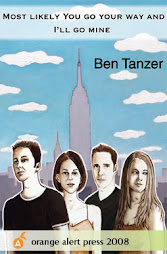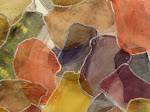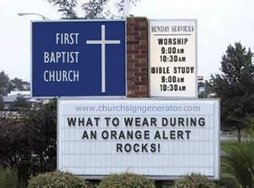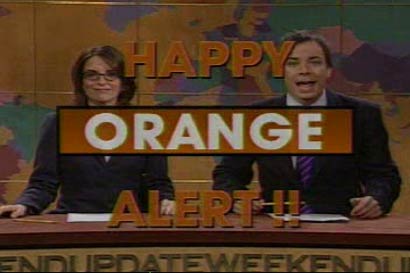
The art of telling a story is a delicate one, but one that is growing tremendously popularity. Well it may sound simple enough for the storyteller to paint a picture, then establish some form of tension, and finally wrap it all together with a satisfying resolution, but there are many layers of humor and social commentary and pure charm that makes this genre so challenging and appealing. One writer who is delving into and promoting this genre is Chicagoan Scott Stealey. Scott and good friend Pete Coco are preparing a launch a literary site to conquer all others (that might be a bit strong, but it will be mighty fine), called Please Don't. This site will feature original content from Stealey and Coco, but also non-fiction work and personal essays from some of the some of the biggest names in Chicago literature and literature in general. You can find a smaller brainstorming version at the Please Don't Blog.
Scott himself is still in the beginning stages of submitting his work, but does have a terrific mini-book, Letter From the Seaway, published by Featherproof, and completely blew me away at a reading last month. However, what is most important is he is writing, and focusing on the written word and the rest will follow.
Recently, Scott took some time out to answer a few of my questions.
Orange Alert (OA): How close are we to seeing the grand roll-out of "Please Don't.com"? I've enjoyed the interim blog posts, but what can we except to see on the actual site?
Scott Stealey (SS): It should be set to go by next month. We have all the content for the first issue ready, but we're still waiting on some of the technical side of things. We plan on having some really cool illustrations, so we want the design to reflect this. Zach Dodson, the designer from Featherproof, is helping us out on the skin and the back end of these issues. That said, my co-editor Pete Coco and I don't plan on Please Don't (please-dont.com) being very flashy. We have lots of ideas about our similar fascinations, which mostly lean toward literature and music, and the close ties between them we've gleaned from paying such close attention to them. We're mainly looking to feature non-fiction and personal essays. We're trying to get writers to focus on thematic assignments, like with one section we've got the idea of "dubious claims." Essentially we make a dubious claim and try to get an honest, argumentative essay from a writer interested in proving or rebuking that claim. Like for the first issue, Jonathan Messinger made the dubious claim to us that he could punch a wolf in the face. So we took him to task, and he produced a funny essay proving that, yes, he could. But because we're both fiction writers, and love reading short stories, we'll have that on the site, too. For instance Patrick Somerville has contributed a wonderful story for our first issue, lending his unique view on surrealism. Tao Lin is going to do some illustrations for us in the next issue. Continuing with our music & literature theme, we will feature a collaborative serial novel called "Axl Watch." The plot of "Axl Watch" revolves around two private investigators paid to follow Axl Rose, who may or may not in fact be the same Axl Rose whom we all remember from the decadent, Appetite for Destruction days. It's sort like a play on the "Paul is Dead" story, or the story of how there were like eight Ultimate Warriors in the WWF. We'll be calling on other writers--who share our love of Axl and detective fiction--to pen subsequent chapters. The effect will be pretty seamless, I think, because Axl, in my opinion, is this great touchstone to memories that remind us why we love rock and roll. I mean there's a fundamental love of showmanship and excess about the guy that made him oddly genuine. When everything comes together next month it will be a pretty great and entertaining website. We were blogging for awhile about assignment ideas at http://www.plzdnt.blogspot.com/. If anyone wants to submit for the future issues, submissions@please-dont.com will get your stuff to us.
OA: You recently participated in the RAGAD "Intersections" reading at Quimby's bookstore, and read a fascinating piece of futurist fiction. Where did the concept of the corn field cemetery come from? Is that piece part of something larger? Can we find it in print anywhere?
SS: That reading was pretty great. The concept was to pick an intersection in Chicago and write a story that evokes something tied to the intersection in some way. I have a ton of trite little problems with this city, mostly to do with my expectation level of human behavior, so I thought this would be a perfect time to air my grievances. One of these difficulties has to do with spray paint on the sidewalks. Everywhere you walk, the huge companies that provide internet service to your home have tagged your sidewalk with red, orange, yellow, pink spray paint. They do this to mark where the tubes are, beneath the ground. Then the guys in the SBC trucks can dive into a sidewalk or street corner and correctly wire you to the Internet. Since the internet cannot be free for some of us, this spray paint helps differentiate the different ISPs, like some lines will have an "MCI" mark on them, so they don't mess with SBC's tubes, Comcast's tubes. But meanwhile, there's all these spray painted lines and Xs and circles all over your sidewalk. This spray paint is literally the first thing in the morning that I see, and that drives me crazy. I've always understood the sidewalk to be a public space that the city controls, and yet here is all this colorful corporate nonsense right outside my door. What bugs me is that I can't say or do anything to the city to prevent that. A representative from my alderman's office actually had no idea what I was talking about when I brought this up to him. People just ignore their sidewalks. This kind of behavior just infuriates me. I'm surrounded by condos, and if some SBC dude even dropped his coffee in the lobby of one of these places, there would be meetings, decisions, action. But as I write this I'm looking out at my street, the sidewalk and these little fucking pink circles going on down the grid for two blocks. Why? And why isn't there a better system? I took some paint stripper and actually scrubbed out some of the spray paint that sits on the sidewalk outside my front stoop, only to discover a week later that some asshole came back and gave me some fresh new yellow lines.
So anyway, the story. I wanted to extend this lazy attitude people have about the ground, this taking of the sidewalk for granted, into the future. I decided that in this future the ground would become the most important thing, because it has become scarce. And because it was scarce, it would all be centralized, controlled by the government. So the concept of the Corn Cemetery was more about my reaction to how people would treat the ground if it was actually something valuable. Also, I love author Michael Pollan, and in his new book The Omnivore's Dilemma he discusses how almost everything in our economy is processed from corn. Like even the chemical that makes a magazine cover glossy, that came from corn. So I figured corn would play a role in any future society struggling with a lack of earth. The story's pretty complete as a short story, and I'm sending it off to a few places, so you may see it in print soon. I'm relatively new to the submitting my work process. But I'm learning, and I'll have more out there as I keep up the process.
OA: Your mini-book "Letter from the Seaway", reads as a letter between to old friends, one of whom is about to become a father for the first time. However, the way you end that story basically sums up why people write in general. Brilliant. What is your opinion of Featherproof's mini-book series in general? Where else can we find your work?
SS: Thank you. Featherproof's mini-books are all fantastic and special in their own way. They're free, too, which is really special. Also, they bring focus to a singular story, they shrink the universe for a moment, which I think is wonderful for people who like and read a lot of short stories. I submitted to them because I'm a fan of the idea and the backlog of mini-books they offer. I keep thinking that when you have one story by itself, it extends the narrative possibilities so much more for the reader. Like, if you download this one story, why is it by itself? Why is it its own object? I like thinking in those terms.
There is also a lit mag I like called One Story that carries a similar idea (only you have to pay), about only featuring one story, letting one author really have center stage. Both Featherproof and One Story are doing pretty well, so I think the idea has caught on. I think readers like the simplicity of stuff like the mini-books and One Story. "I just want some help to pare the good stuff down. Give me just one story to read." I think this concept is pretty important and meaningful when you live in a world of seemingly infinite choices. Brought to you, of course, by SBC or Comcast.
OA: Is staff editor of Playboy.com as cool of a job as it sounds? How did you come to work for Playboy?
SS: I do have a cool job. But it's not the novelty that makes it cool, it's that it is a nice place to work, a good company. It's been around for awhile. I'm not crazy stressed out, and my colleagues are all pretty neat people.
I came to my job the same way everyone comes to their job, by scanning job boards on the Internet for 12 hours a day, and attaching PDFs and Word documents in emails to strangers from HR departments. This system demonstrates another one of my little ticks about expectations of human behavior. Am I the only one who fosters huge resentment for this system? It seems like it, because the system is only getting bigger. Job search engine sites treat getting a new job like it's some sort of reward. But it's a job. I was really poor for some years, entry-level publishing, but I tried to enjoy it. My father told me that I should enjoy my poverty, that it is meaningful later in life, so you should enjoy it while it's happening. He told me that he constantly looked back on being dirt poor as the best time ever in his life, full of small rewards. I think that's a good point, and it kept me going for several years. So please don't waste your time looking at job sites on the Internet all day. It's addictive and there is no reward.
OA: What is your opinion of the current state of literature in Chicago?
SS: For all my little beefs, I love Chicago. I know a bit about the current state of literature here because I've worked in publishing, and I go out to see readings when I can. My opinion of the current state is that it is very strong and focused, and is very sharing, as many different writers can appear at a single reading. I'm a big fan of illogical geographical arguments, the belief that certain areas produce certain kinds of art. So here in Chicago we're the "Second City," so we've always been downplayed by literary centers like New York, San Francisco. But that makes for a kind of fight for relevance in the writers here. Many of the writers I see read here have this dogged insistence about their stuff. It's totally unpretentious, and I love that the same group of folks keep coming out day after day, getting better and better. Because you have to fight harder, being here. It's not easy, and you acquire chops from hard work that usually doesn't have the outlets like New York. But it's great. There's something very noble to me about Chicago writers. Much like my father's advice about poverty, I think writing in Chicago is something you have to enjoy while it's happening.
OA: What's next for Scott Stealey?
SS: I'm working with the second chapter for "Axl Watch" for Please Don't. I'm in love with this idea that Pete and I throw around about Axl being in fact the last rock star, since rock went the way of the "alternative" and "indie" after Cobain, who was the ultimate anti-rock star. And honestly, "In Utero" might be one of my favorite rock albums ever, but it doesn't change the fact that Cobain essentially killed the rock star, or rather, made the image of the hard-rockin' dude ironic. I'm thinking there should be a fight scene between Axl and some indie rocker, modeled much like the fight he and Cobain supposedly had at the MTV awards in '93, when Cobain was wearing the Daniel Johnston T-shirt, and Axl was rocking an umpire's chest protector.
Also, I've written some short stories about Bigfoot, and hope to have a novel going soon. Mostly I don't think Bigfoot has ever gotten a fair take. He's always a joke, or an ironic representation used to sell beef jerky or something. It's totally unfair. Here is this incredibly classic American monster, and so far in art our response has been total camp, all the way. Granted, I'm huge fan of those '80s monster-comedies, but I've always felt there's more to be said for the monsters, like maybe the Toxic Avenger has a certain decency that can be explored more, without using humor. Monsters are great characters.
Bonus Question:
OA: What type of music do you enjoy, and who are some of your favorite musicians?
SS: Some of my favorite musicians are Mike Patton, Paul Westerberg, John Lennon, John Bonham, Bill Callahan, and Axl Rose.
There was this one recent band I truly loved in Chicago, The New Black, but they've broken up. They are incredible, check them out.
For more information on Scott Stealey please visit Please-Don't.
+by+Nick+Volkert).jpg)





















No comments:
Post a Comment